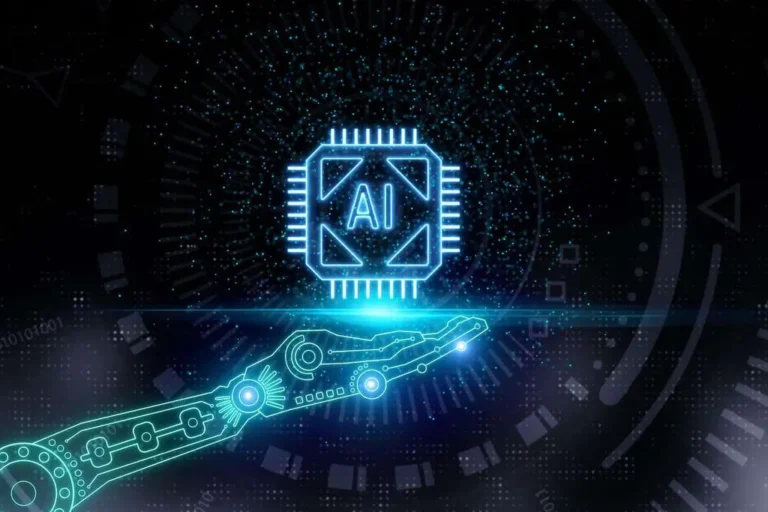DevOps might help bridge this gap efficiently and join these two teams. Moreover, the necessity for complete safety extends past the tools themselves, encompassing numerous elements of the container lifecycle, including photographs, registries, deployments, runtime, and extra Container Orchestration. Continuous monitoring and compliance assessments are also crucial in mitigating both recognized and unknown safety threats. Docker containers have their native orchestration platform, Docker Swarm. It’s less complicated to arrange and use than Kubernetes, making it an excellent option for newbies or smaller deployments.
Complements Microservices Architecture
- But if we need to run extremely available, we should have multiple copies.
- Businesses weighing the choice of whether or not or not to undertake container orchestration can decide if they need to by gaining a deeper understanding of why and the method to implement it.
- On prime of that, containers remain isolated from each other, making them more light-weight and efficient than virtual machines (VMs), which require a full OS for every instance.
Container orchestration enables these applications to maximise the advantages of the cloud by providing automation, scalability, and reliability. By managing the underlying infrastructure efficiently, container orchestration frees builders to concentrate on creating options and improving user experiences. Like the others right here, Nomad is an open-source workload orchestration device for deploying and managing containers and non-containerized apps across clouds and on-premises environments at scale.
What Is Container Security? [securing Containers 101]
These include container provisioning and deployment, networking, load balancing, and scaling. Okteto, as an example, allows developers to spin up growth environments inside the Kubernetes cluster, full with code synchronization, port forwarding, and access to cluster resources. Eliminating the need for local development environments streamlines the development workflow. Once the manifests are outlined, you’ll be able to deploy the appliance utilizing the kubectl command-line tool or by way of a steady integration/continuous deployment (CI/CD) pipeline. Kubernetes will then schedule the pods across the out there nodes within the cluster, ensuring excessive availability and load balancing.
Tips On How To Get Started With Container Orchestration?
Some container orchestration tools provide deployment controllers that additionally simplify rollout and rollback, pod management, and more. In container orchestration, a cluster is a group of machines, both bodily or virtual, that work together to host containers. The orchestration device manages these clusters, balancing workloads throughout multiple nodes to optimize performance. And these microservices make it easier to orchestrate companies, including deployment, storage, networking, and safety. Regardless of the development setting of an enterprise, builders do not have to rewrite the code for containerized purposes if a have to deploy them on a unique platform arises.
Container Orchestration: Managing Purposes At Scale
This allows you to manage visitors throughout a quantity of applications running in different regions utilizing one load balancer configuration. Container orchestration is but a younger know-how with many challenges to beat. As a outcome, there are many competing container orchestrators in the marketplace at present, every with its strengths and weaknesses. Kubernetes is by far the most popular, however it doesn’t come without its challenges. This microservice-based architecture permits your utility lifecycle’s automation by providing a single interface for creating and orchestrating containers.
Meanwhile, nodes are the physical or digital machines that host the containers. The term cluster is often given to collections of nodes that work collectively to supply the resources wanted to run a single containerized application. Finally, a cluster master or grasp node usually acts as a control point for a cluster. Container orchestration helps reduce the issue of managing resources in containerized functions.
Theresa oversees the strategic direction and operational excellence of the People Operations function at Acumera. With over 20 years experience, she is tasked with crafting the technique and roadmap to optimize the effectiveness of our group whereas aligning with Acumera’s values and strategic objectives. Additionally, Theresa offers counsel to senior management in issues related to people leadership to make sure the profitable implementation of key company initiatives.
And then I will outline an ingress to get a URL for my new application. I will use kubectl apply -f and the name of the yaml file -n, and the name of the namespace. Let’s examine if the ingress is okay, with the kubectl described ingress command, with the name of the service.
You can configure container orchestration tools to scale primarily based on demand, network availability, and infrastructure restrictions. The container orchestration solution can monitor performance throughout the container network and routinely reconfigure containers for optimum efficiency. Container orchestration is the method of automating the networking and administration of containers so you probably can deploy purposes at scale. Containerization bundles an application’s code with all the information and libraries it must run on any infrastructure. Microservices architectures can have lots of, and even hundreds, of containers as purposes grow and turn out to be extra advanced.
To be in a position to reach my software in my browser, I will want to outline an ingress. And the Traefik component on the site visitors software program will help in this. Traefik is a contemporary open source, reverse proxy and load balancer designed to manage and route traffic to your microservices or internet utility. It simplifies the deployment of utility by routinely detecting the providers and routing traffic to them. Different container orchestrators implement automation in numerous ways, but all of them rely on a common set of parts known as a management plane.
It is possible to reuse only some of their elements, somewhat than construct a new picture from scratch. However, remember that code, pictures and their dependencies are vulnerable to safety threats. To mitigate this, implement strict scanning to discover out security vulnerabilities. Admins should include a safety mechanism within the CI pipeline, corresponding to scanning code for vulnerabilities as a pre-scan job all through the CI cycle.
As an engineer turned product marketer, Vinodh brings technical knowledge and market insights to help readers understand the advantages and challenges of protecting NAS knowledge. Through his writing, Vinodh goals to empower companies to make informed decisions about storing, protecting, and utilizing knowledge with ease. Vinodh lives with his family in Arizona and enjoys hiking and road journeys in his free time. It is essential to have security-minded builders who manage and preserve the entire course of to reduce security dangers. By implementing security greatest practices such as automated vulnerability scans in a continuous integration pipeline, you can considerably scale back your threat exposure.
VMs allow engineers to run numerous functions with ideal OSs on a single physical server to extend processing power, scale back hardware prices, and reduce operational footprint. They no longer need to run a single software per complete server. Slower deployment and operation due to needing to load and run full OS components. Containers on a failed node are quickly recreated by the orchestration device on one other node. Provide lightweight isolation from the host and different containers. Not as strong as VMs however could be enhanced with Hyper-V isolation.
Transform Your Business With AI Software Development Solutions https://www.globalcloudteam.com/ — be successful, be the first!




